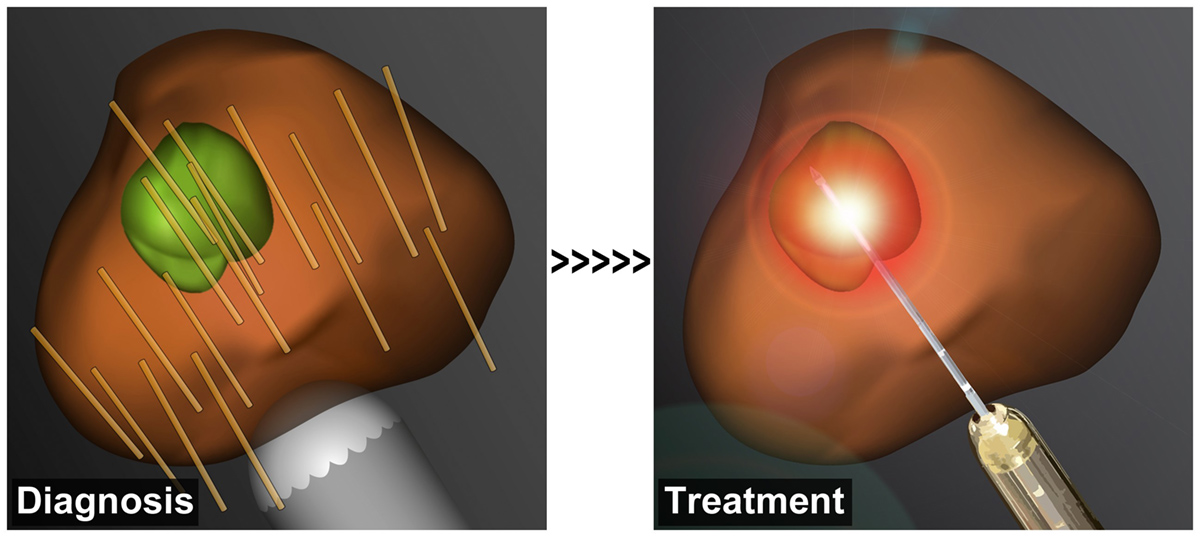
Inflamed prostate is a common disease that affects 10-15% of men at least once in their life. The prostate is a gland that is a part of the male sexual system. It is located below the bladder and in front of the rectum. The prostate surrounds the urethra, which takes urine from the bladder to the top of the penis. Its main function is the production of fluid that is part of semen. Muscle contractions push fluid from the prostate to the urethra during orgasm.
Causes
The most common causes of prostatitis are bacterial infections (mostly intestinal bacteria, Proteus, Staphylococcus), autoimmune disease, neuromuscular, or mechanical injuries.Inflamed prostate is rarely caused by metabolism of uric acid (gout) disturbance, prostate stones, narrowing of the urethra, tumors, benign prostate hyperplasia, food allergies, fungal and viral infections.
Certain conditions or medical procedures increase the risk of this disease, for example: setting instruments or catheters in the urethra, anal sex, abnormalities of the urinary system, urinary system infections, enlarged prostate, urination disorders, stress, reduced exposure to sunlight, uncontrolled sexual activity, frequent masturbation, urinary system injuries, the fixed position of the body, excessive alcohol consumption, long-term refraining from urinating.
Symptoms
Symptoms of inflamed prostate are not specific only to this disease and they can resemble other diseases of genitourinary system. Sometimes, there are no symptoms, and sometimes they are so obvious and abrupt that patients often require urgent assistance. Acute Prostate InflammationSymptoms appear suddenly. There may be a pain in the area below and behind the sexual organs, pain in the lower part of abdomen and back pain, difficult urinating, frequent urination of small amounts of urine, frequent urination at night, pussy or bloody discharge from the urethra, fatigue and fever. If there is a prostate swelling, it may interfere with urine outflow, causing its delay (retention of urine) and accumulation in the urinary bladder. The prostate is almost always increased. Chronic Prostate Inflammation
Chronic infection can develop from acute infection or disease has a chronic course from the beginning. This form of disease includes moderate pain below and behind the penis and lower back, difficult urination of small amounts of urine, skimpy bloody or pussy discharge from the urethra. Also, fatigue, tingling, painful ejaculation and even impotence may occur. Prostate can be enlarged or reduced and hard. It is not rare that the only symptom of chronically inflamed prostate is repeated bladder infections.
Diagnosis
Diagnosis is based on the digital rectal examination of the patient and laboratory analysis. Causes of inflamed prostate are determined by urine and prostate secretion testing.Treatment
Treatment of acute prostate inflammation includes inaction, lowering body temperature and plenty of fluids intake. In addition to symptomatic treatment, antibiotic therapy is applied according to the cause. Treatment must be performed for a month. Otherwise, it may cause the emergence of chronic prostatitis.Treatment of chronic prostatitis is a problem because antibiotics are difficult to penetrate the prostate tissue. First of all, it is necessary to identify the causes of inflammation, which can also be a problem since they can be "hidden" deep in the tissue of the prostate. The choice of antibiotics will depend not only on the sensitivity of the cause but the ability of penetration into the prostate tissue. In addition, the treatment is time consuming and may last for up to three months.
Treatment of nonbacterial prostatitis can be a problem. Hygienic and dietary regime can be useful so it is advisable to avoid food, drink and activities that aggravate symptoms (coffee, alcohol, spices, etc.).

















Your thoughts on this
Loading...